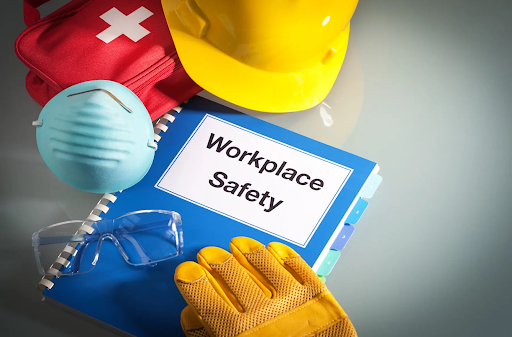
NEBOSH Online Conference 2025: Empowering Global Safety Professionals — Sponsored by Gulf Academy of Safety
In today’s rapidly evolving industries, safety isn’t just a regulation

In the ever-evolving landscape of the modern workplace, the importance of maintaining a safe and healthy environment cannot be overstated. Industrial safety courses play a pivotal role in achieving this goal, providing employees and management with the knowledge and skills necessary to mitigate risks and prevent accidents. This blog explores the crucial reasons why industrial safety courses should be a priority for every workplace, highlighting the benefits of industrial safety course certification and the convenience of courses online.
A robust safety culture is the backbone of any successful industrial operation. Industrial safety courses lay the foundation for this culture, emphasizing the importance of safety in every aspect of the workplace. By prioritizing safety training, companies send a clear message to their employees that their well-being is of utmost importance, fostering an environment where safety is everyone’s responsibility.
Industrial safety course certification ensures that businesses stay compliant with local, national, and international safety regulations. These courses are designed to keep up with the latest standards in industrial safety, helping companies avoid costly fines and legal issues. More importantly, compliance through education helps prevent workplace accidents, saving lives and reducing injuries.
When employees feel safe at work, their morale and productivity naturally increase. Industrial safety courses equip employees with the confidence to perform their duties efficiently, knowing that risks are understood and managed. A safe workplace is a happier workplace, leading to reduced absenteeism, lower turnover rates, and a more engaged workforce.
The financial impact of workplace accidents can be devastating for businesses. From medical expenses and compensation to lost production time and increased insurance premiums, the costs can quickly add up. Industrial safety course certification helps companies minimize these risks by implementing effective safety measures and practices, resulting in significant long-term savings.
The advent of courses online has made safety training more accessible and flexible than ever before. Employees can complete training at their own pace and on their own schedule, making it easier to fit into busy workdays. This convenience ensures that more employees can receive the training they need without disrupting productivity.
Also Read: Fire Safety Tips at Workplace for Safe and Secure Environment | Fire and Life Safety Audit for Critical Issues
A diploma in industrial safety course offers specialized knowledge tailored to specific industries and job roles. This level of training is invaluable for addressing the unique safety challenges faced by different sectors, ensuring that safety measures are both effective and relevant.
In addition to the fundamental benefits already discussed, prioritizing industrial safety courses has a far-reaching impact on innovation and sustainability within the workplace. By fostering a safety-first mindset, organizations encourage a proactive approach to problem-solving and risk management. This not only enhances the immediate work environment but also drives innovation as employees and management collaborate to identify and implement safer, more efficient processes and technologies.
Moreover, the emphasis on industrial safety training courses contributes significantly to the sustainability of a business. Companies that invest in comprehensive safety training are better equipped to handle unforeseen challenges, such as accidents or regulatory changes, ensuring long-term operational resilience. Furthermore, a strong safety record enhances a company’s reputation among clients, investors, and potential employees, making it a more attractive and competitive entity in the market.
Lastly, the advancement of industrial safety online courses has democratized access to high-quality safety training, enabling small and medium-sized enterprises (SMEs) to afford the same level of safety education as larger corporations. This levels the playing field, ensuring that businesses of all sizes can protect their employees and contribute to creating an industry-wide culture of safety and excellence. Prioritizing industrial safety courses is not just a regulatory necessity but a strategic investment in the future of a company and its workforce.

In today’s rapidly evolving industries, safety isn’t just a regulation

The UAE is recognized as a global leader in building

In an era where workplace safety, environmental stewardship, and sustainable